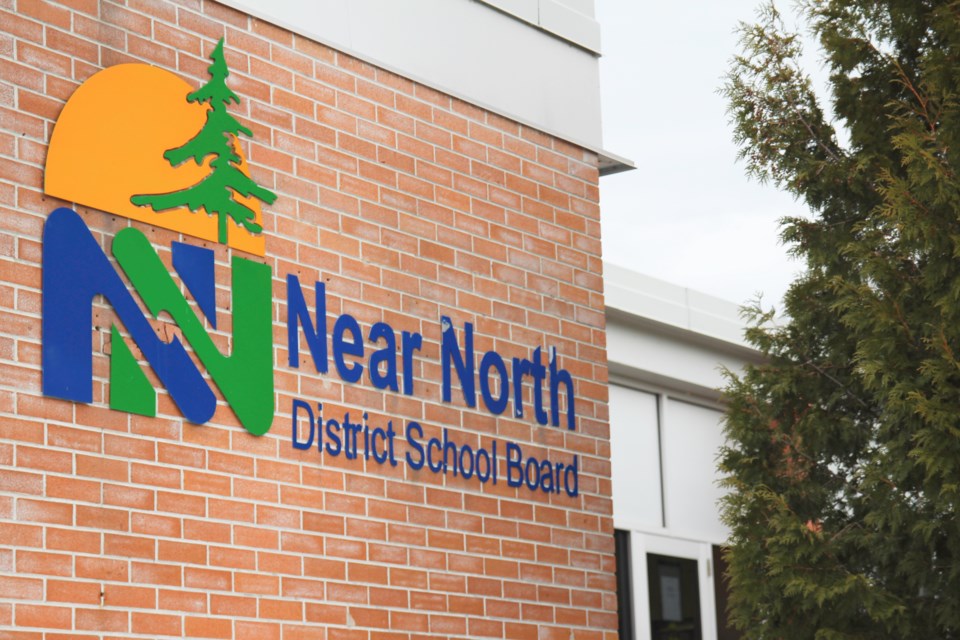The Near North District School Board will not rename Chippewa Secondary School any time soon, although, in November, the wheels will likely begin turning again.
The decision to rename the school came about in 2017. Earlier this year, the renaming committee solicited suggestions for a new name from the community. A long list of possible names was supposed to be whittled down to five options this past April, but these options have not been revealed nor discussed at a board meeting open to the public and media.
Superintendent of Education Gay Smylie chairs the renaming committee. In June she explained that two main documents oversee the renaming of a school. The committee has its own Terms of Reference, and this is overseen by Administrative Guidelines, specifically, the section entitled School Openings, Closures and Consolidations.
In June, those two documents “misaligned,” the committee explained, and this remains the case today. “It’s a procedural issue,” noted Craig Myles, Director of Education. Before summer break, sections of the administrative guidelines were up for revision. Part of the process for the procedure demands the guidelines be posted for public input for a time, and then be reviewed by the Board before being approved.
See related: Name change for Chippewa school coming this fall
This process is still in the works, which affects the renaming committee’s Terms of Reference. The Administrative Guidelines must be approved to ensure the committee is operating according to those guidelines.
Renaming Chippewa is not a popular move for some in the community, but the Board made clear that doing so will ensure compliance with the Ontario Human Rights Code. In September 2021, the Ontario Human Rights Commission reached out to the public for feedback as it was “developing a new policy statement on the discriminatory display of names, words and images.”
“Indigenous peoples and racialized communities, among other groups, are calling for the removal of statues of historic figures who are perceived as colonizers, slave owners, or who advanced racist policies,” the Commission outlined. “Similar calls are being made to rename roads, schools, government buildings and other institutions named for the same reasons. Affected groups have described these displays as symbols of oppression, cultural genocide and intergenerational trauma.”
See also: Petition started to stop school board renaming Chippewa
“What’s in a name? Often, everything,” said OHRC Chief Commissioner Patricia DeGuire. “We continue to hear about communities disturbed by the name of a street, a sports team, a building or a monument. This policy statement is being designed to help foster a better understanding of the human rights issues involved, and to prompt communities to work together in a respectful way to overcome these issues.”
At that time, the Commission posted the proposed policy on its website. The Commission also noted in an email to BayToday that it “has not reached out to school boards regarding any situation involving the issue of discriminatory displays of names, words and images.”
However, the “OHRC is committed to providing the education sector with sound recommendations on preventing and addressing systemic discrimination.”
As the Human Rights Commission continues to update its guidelines, the renaming committee wants to ensure that its terms of reference are “in absolute alignment” with these guidelines, Smylie noted.
Until then, the school’s name will remain the same.
David Briggs is a Local Journalism Initiative reporter who works out of BayToday, a publication of Village Media. The Local Journalism Initiative is funded by the Government of Canada.
